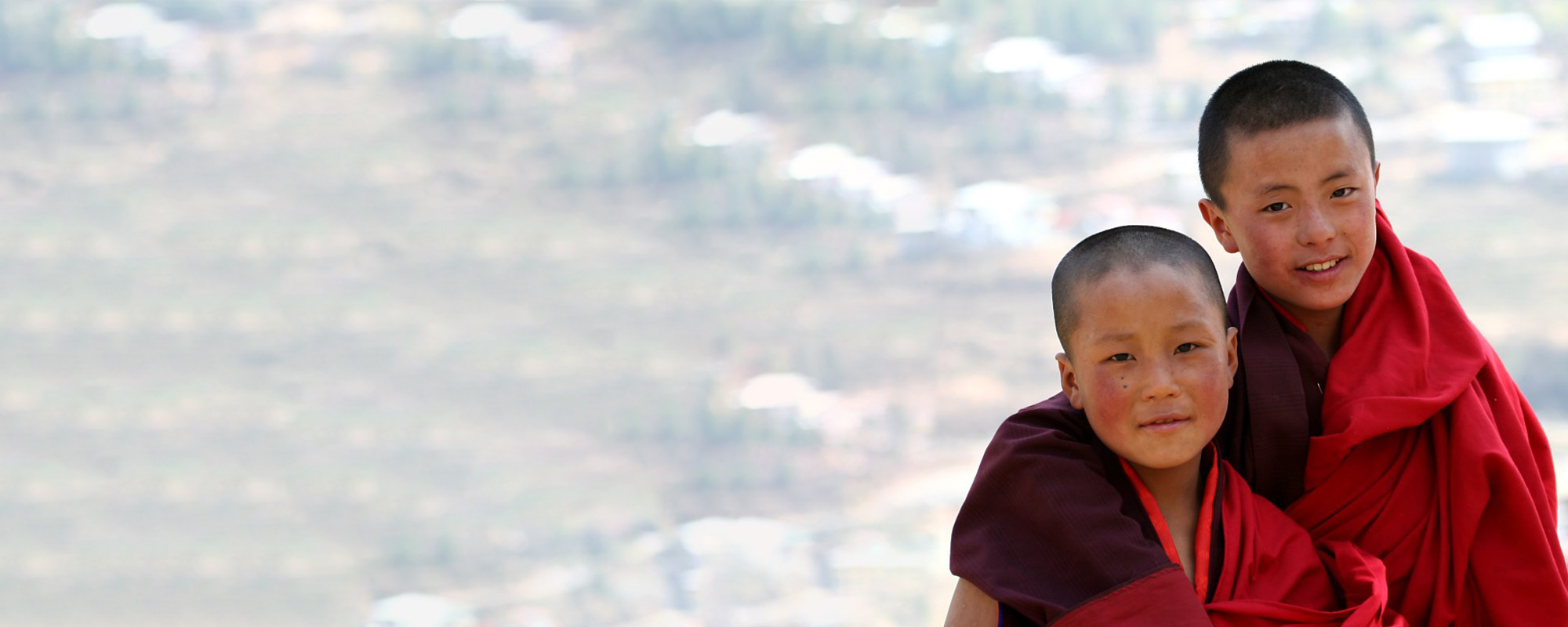National symbol
Bhutan @ Glance: The land of the great Dragon
Bhutan, the first place considered by every individual from abroad to travel and experience the warmth of true happiness. It is voted one of the world’s top travel destinations but very few make it to this land of Great Dragon but we are here to help every individual to make their dream of entering to this peaceful kingdom come true. Bhutan, a Buddhist kingdom is surrounded by the majestic virgin landscapes that range from subtropical plains to steep valleys, legendary ancient temples and fortresses. People savor spicy yet delicious traditional food, celebrate colorful festivals and remain always happy. The fascinating things about this isolated Himalayan Kingdom are knitted strong within its cultural realms. Bhutan has a rich and unique cultural heritage that has always remained unharmed because of its isolation and its tradition is deeply steeped in its Buddhist heritage. The citizens have developed a rooted feeling towards their culture and their common aim unites for the preservation of their rich culture.
Where you can find your happiness
People from abroad crave to enter the great Dragon kingdom which had been a hidden paradise till this date, accessible only to a fortunate few. Bhutan is known as the last Shangri-La, the country untouched by forces of today’s globalization. Bhutan remains rich with its culture and traditions. The splendid natural environment catches the eye of every people who gets the privilege to enter the kingdom. This pristine environment gave shelter to exotic wildlife which turned as a last refuge for endangered species like the Black-necked Crane, the Blue Seep, the Golden Langur, and even the Royal Bengal Tiger.
The last vestige of early
civilizations
Buddhism is deeply engraved in the soul of
the country and is driven with interesting cultural beliefs. Touched with
philosophy of Buddhism, people are helpful and kind, moreover their traditions
actively guides them even at this present time. People pursue happiness rather
than material gain thus Bhutan is the only country to measure GNH or Gross
National Happiness as an indicator of its prosperity.
Bhutan
is also known as the last upholder of Vajrayana Buddhism, a spiritual practice
that is known to be one of the most profound schools of teaching in the
Buddhist world. Bhutan is
surrounded by magnificent monasteries, fortresses, the
fluttering prayer flags on the high ridges and the red-robed monks catches the eye of every visitor in the
country which give this kingdom an aura that comes from another time.
The people in Bhutan have drawn a rich culture from this heritage and made it
the essence of their unique identity. The entry of globalization is balanced
with the values that have kept human society together through the ages.
The kingdom of Bhutan may have become man’s last unventured destination but this is how the Bhutanese people would like to keep to safe guard the last Shangri-La, carefully controlled by tourism policy of the Bhutanese government.
Gross National Happiness
Development Philosophy – Gross National Happiness (GNH) is an attempt to define a quality of life in more holistic and psychological terms than Gross National Products. Economists around the world have argued that the key to happiness is obtaining and enjoying material development. However, Bhutan adheres to a very different belief and advocates that amassing material wealth does not necessarily lead to happiness. The philosophy of Gross National Happiness has recently received international recognition and the UN has implemented a resolution
The term was coined in 1972 by the IVth King, Jigme Singye Wangchuck,
who has opened Bhutan to the new age of modernization, soon after the demise of
his father, the IIIrd King, Jigme Dorji Wangchuk. His Majesty the third Druk
Gyalpo Jigme Dorji Wangchuck expressed his view on the goals of development as
making “the people prosperous and happy.” It signaled his commitment to
building an economy that would serve Bhutan’s unique culture based on Buddhist
spiritual values. The fourth Druk Gyalpo emphasized that for
Bhutan “Gross National Happiness,” is more important than “Gross National
Product.” Druk Gyalpo Jigme Singye Wangchuck said that the rich are not always
happy while the happy generally considered themselves rich
While conventional development models stress economic growth as the ultimate objective, the concept of GNH claims to be based on the premise that true development of human society takes place when material and spiritual development occur side by side to complement and reinforce each other.
THE FOUR MAIN PILLARS
The four main pillars of
Gross National Happiness are:
- Equitable and equal socio-economic development
- Preservation and promotion of cultural values
- Conservation of environment and
- Good governance.
These pillars stand for the national and local values, aesthetics, and spiritual traditions.
The concept of Gross National Happiness has become crucial to understand so its wider reach and awareness amongst other countries, so the concept is now being taken up the United Nations and by various other countries.
Gross National Happiness as a development paradigm has now made it possible for Bhutan to take its developmental policies into the remote corners of the kingdom and to meet the development needs of even its most isolated villagers. Furthermore the philosophy aims at promoting the attainment of happiness as the core philosophy of life. The policy of high value, low impact tourism has facilitated the promotion and preservation of our cultural values. The government has facilitated the drive towards self sufficiency and self reliance, the ultimate reduction in the gap between the rich and the poor and ensuring good governance and empowerment of her people as one of its key directives


